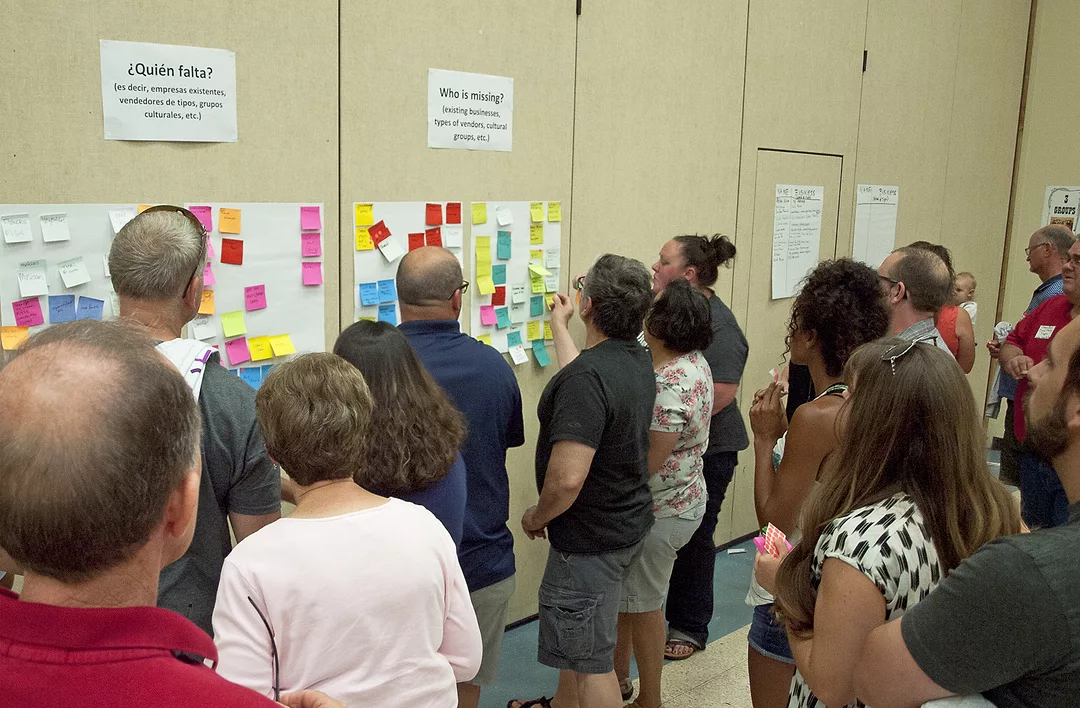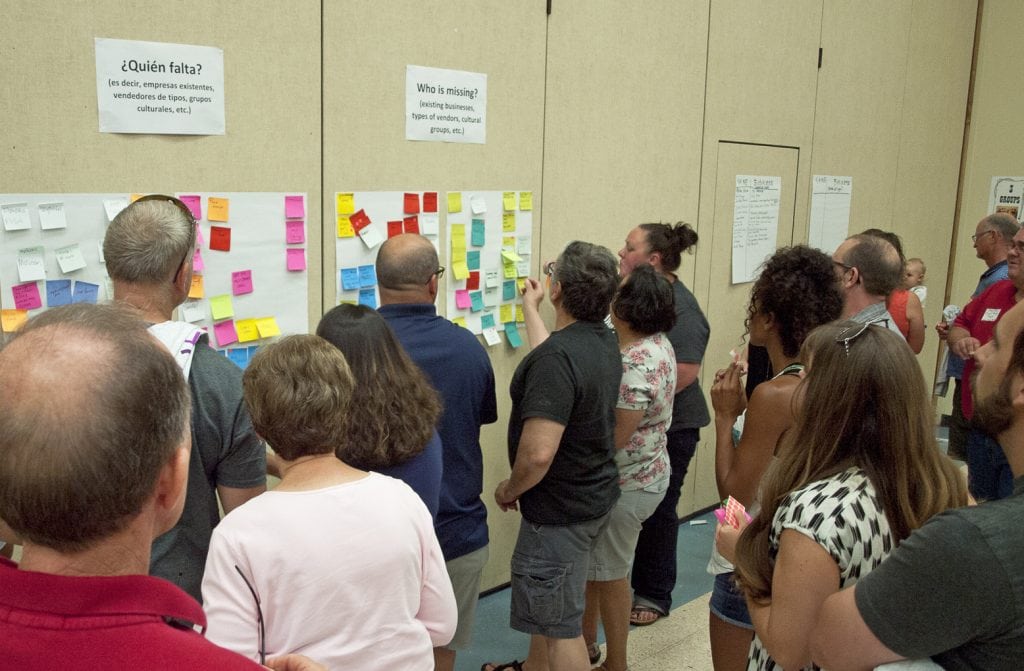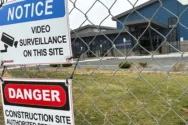
Home » Tri-Cities Public Market begins to gain traction in Pasco
Tri-Cities Public Market begins to gain traction in Pasco

August 14, 2018
For years, there’s been talk of a year-round public market opening in Tri-Cities that might look like Pike Place Market in Seattle or Wenatchee’s Pybus Public Market.
The vision is slowly beginning to take shape.
The nonprofit Tri-Cities Public Market Coalition welcomed 61 prospective vendors to its recent vendors vision and information night to find out what types of businesses should be part of a future public market, answer questions that potential vendors had and brainstorm what they would need to be successful.
Pasco City Councilman Craig Maloney and Port of Pasco’s Gary Ballew attended to answer questions.
Attendees represented an array of businesses: food trucks, restauranteurs, locally-owned jewelry and apparel retailers, musicians, small local grocers, coffee brewers, bakers, shaved ice sellers, art galleries and more.
Once the group’s ideas were collected, attendees indicated the items in each category most important to them.
The data collected will be reviewed by Pasco and coalition officials, as well as consultants, Aaron Zaretsky, the past director of Pike Place Market and a globally renowned public market consultant who’s helped raise more than $100 million for public market projects, and Ted Spitzer of Portland, Maine-based Market Ventures, who also has advised the popular Seattle market.

The coalition continues to seek feedback from other prospective vendors and those unable to attend the event.
“Feedback is absolutely critical,” said Adam Brault, market coalition president, who has spearheaded the effort to bring a public market to Tri-Cities since 2015.
In addition to helping reopen Uptown Theatre as a community space and organizing the first TriConf, Brault is also the founder/co-founder of several businesses: &yet, a people-first software company; Doctype Society, Tri-Cities’ first meetup for design, technology and software professionals; Talky, a video chat service requiring no downloads or plugins; ^Lift Security; WholeStory, a startup whose mission is to change hiring culture; and Fuse Coworking space in Richland.
Coalition members said the information gained from the vendors will be hugely beneficial, especially when the group moves into the next phases beyond the feasibility study and site analysis.
The $40,000 feasibility study also will draw on feedback collected from an online community survey from earlier this summer.
The survey asked respondents for their thoughts on the project, what kinds of businesses they would like to see take part, and where the market should be located — either in downtown Pasco near the existing Pasco Farmers Market, or at the larger, port-owned, former marine terminal site to the east of the cable bridge.
Fifty percent said they were likely to visit the downtown Pasco location frequently, and 75 percent said they were likely to visit the marine terminal location frequently. Nearly 3,000 people completed the survey.
In 2016, Brault and the coalition approached the city of Richland, proposing the public market go in the vacant two-acre space at 650 George Washington Way — known as the pit —at the “gateway” to Richland.
But the city rejected the proposal in favor of the Park Place development, 6,700 square feet of retail space and a 106-unit apartment complex, projected to be completed during late 2019.
Brault recalled a former consultant to the coalition having said, “To be successful, the local city government has to have skin in the game,” and that the market couldn’t be successful with private citizens alone, though the initiative has gained tremendous support from the community.
The Tri-Cities Public Market Facebook page boasts more than 11,000 likes.
Not losing heart after its first rejection, the coalition turned its attention to potential sites in Kennewick and Pasco. Pasco offered the best opportunities, so, with Kennewick’s support and Pasco’s keen interest in the project, the initiative began to gain real momentum, Brault said.
“This is and should be a Tri-Cities Public Market that really brings our whole community together,” he said. “Our sprawl makes discovery hard. It’s a challenge that exists for new businesses in our area trying to get discovered. It makes starting out really expensive.”
Brault said the coalition hopes the proposed 30,000-square-foot, indoor, climate-controlled public market space will serve as an incubator for businesses to grow beyond the market.
“We want to create great Tri-Cities-grown brands,” he said. “We know that a lot of great things can come from here and do come from here. We want to showcase the Tri-Cities.”
The project would have ties to the local music and art scene, too.
“Culture is at the center of the experience we want to create—it’s the core of what this is,” Brault said.
The market would offer a variety of space sizes to suit vendors’ needs, which the coalition projects will include public utility hookups in most of the spaces. Affordable rents are also a priority, “so that the smallest and most daring and creative of businesses has a chance to thrive,” according to coalition officials.
Public sitting areas and kid-friendly activities are envisioned to be interspersed throughout the market.
Coalition officials expect the market to be a popular place among “a crowd willing and able to spend money,” though they also hope to offer SNAP tokens “so people of all income levels are able to purchase food at the public market.” The federal SNAP program offers nutrition assistance to eligible, low-income individuals and families.
Accessibility is also a priority for the market’s design.
Kevin Lakey has agreed to serve as consultant on the project. He has advised Seattle Pacific University and Pacific Northwest National Laboratory in Richland on accessibility, served on the Washington State Governor’s Committee on Disabilities and Employment Issues for six years in related efforts, and most recently, has been an advisor for Kadlec for its tower expansion project.
With the anticipated popularity of the market, prospective vendors are expected to operate a full-time business, be open a minimum of five days per week and willing to operate during evening and night hours, with larger “anchor” vendors open possibly six to seven days a week.
The consultant’s study is expected to wrap up later this summer.
Tri-Cities Public Market: Facebook; tricitiespublicmarket.com.
Real Estate & Construction Local News
KEYWORDS august 2018





